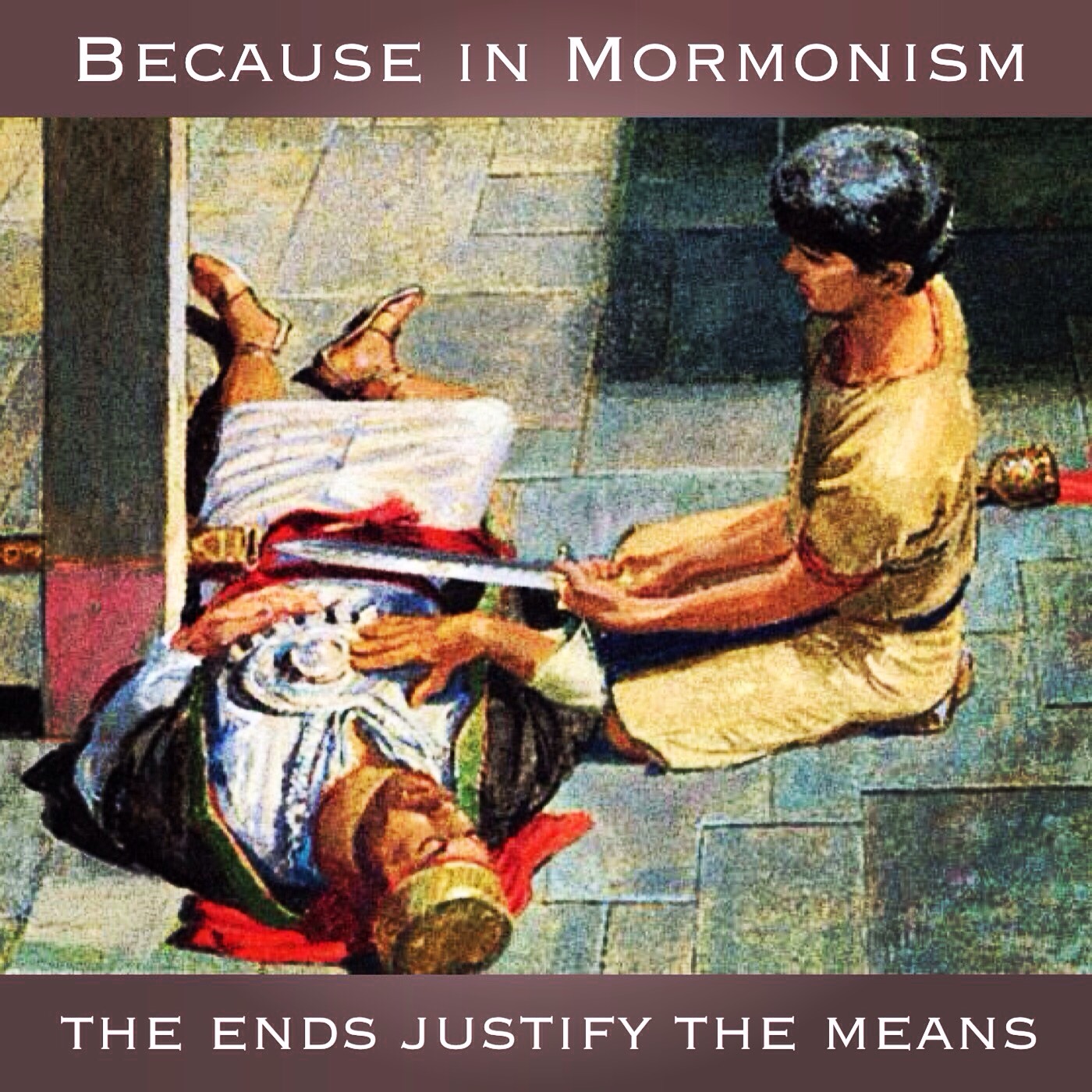
SCRIPTURE: “And I was led by the Spirit, not knowing beforehand the things which I should do. Nevertheless I went forth, and as I came near unto the house of Laban I beheld a man, and he had fallen to the earth before me, for he was drunken with wine. And when I came to him I found that it was Laban. And I beheld his sword, and I drew it forth from the sheath thereof; and the hilt thereof was of pure gold, and the workmanship thereof was exceedingly fine, and I saw that the blade thereof was of the most precious steel. And it came to pass that I was constrained by the Spirit that I should kill Laban.” –1 Nephi 4:6-10. [source]
NEW ERA: “We must ever be on guard against being deceived by our emotions or by revelation from an unworthy source. Through the scriptures and the statements of modern prophets, we find principles that can help us determine how to decide if revelation comes from the Lord or from another source. I would like to briefly outline five of those guidelines or principles. 1. It is God who determines all aspects of revelation. 2. The content given in a revelation is more important than the form in which it comes. 3. Revelation from God does not contradict gospel principles or go contrary to established Church policy and procedure. 4. The Lord wants us to use our agency and develop spiritual self-reliance. 5. A person is not given revelation to direct another person unless they have priesthood or family responsibility for that person.” -Gerald N. Lund, New Era, July 2004. Italics added. [source]
COMMENTARY: Until you can show that revelation can be reliably communicated from heaven, you cannot use your feelings as proof of heavenly communication. Too many evils have been committed in the name of god to trust any revelation. It’s time for the LDS church to teach that Nephi, an imperfect mortal prophet subject to temptation, sinned when he murdered Laban for the plates. But what do I know? I’m just another apostate.





Ye do err, not knowing the scriptures.(Matt. 22:29).
In 1 Nephi 4:11 & 17, the Spirit explains to Nephi that “the Lord hath delivered him into thy hands.”
This is in accordance with the law of Moses as revealed in Exodus 21:12-14.
Thus, Nephi did not violate gospel principles as then revealed.
It is wrong to murder, unless the Lord delivers him into your hands.
Nephi was an imperfect mortal prophet subject to temptation, but he did not sin when he killed Laban for the plates.
Nephi did not slay Laban without an internal struggle and a struggle with the Spirit as revealed in 1 Nephi 4: 6 & 10.
Please help me understand your position. Are you saying that only premeditated murder is prohibited? If so, does this reasoning also apply to other sins, such as breaking the law of chastity? Like if you’re just caught up in the moment, it’s okay to violate God’s laws, as long as you feel conflicted about it and struggle a bit before giving in?
Or are you saying that as long as you can find an obscure scriptural reference and then use the same language as that scripture, you can be excused for direct violations of direct commandments? For example, if you say you’re partaking of a “mild drink made from barley” rather than “beer”? That’s okay, then, right?
Thanks for what you do.